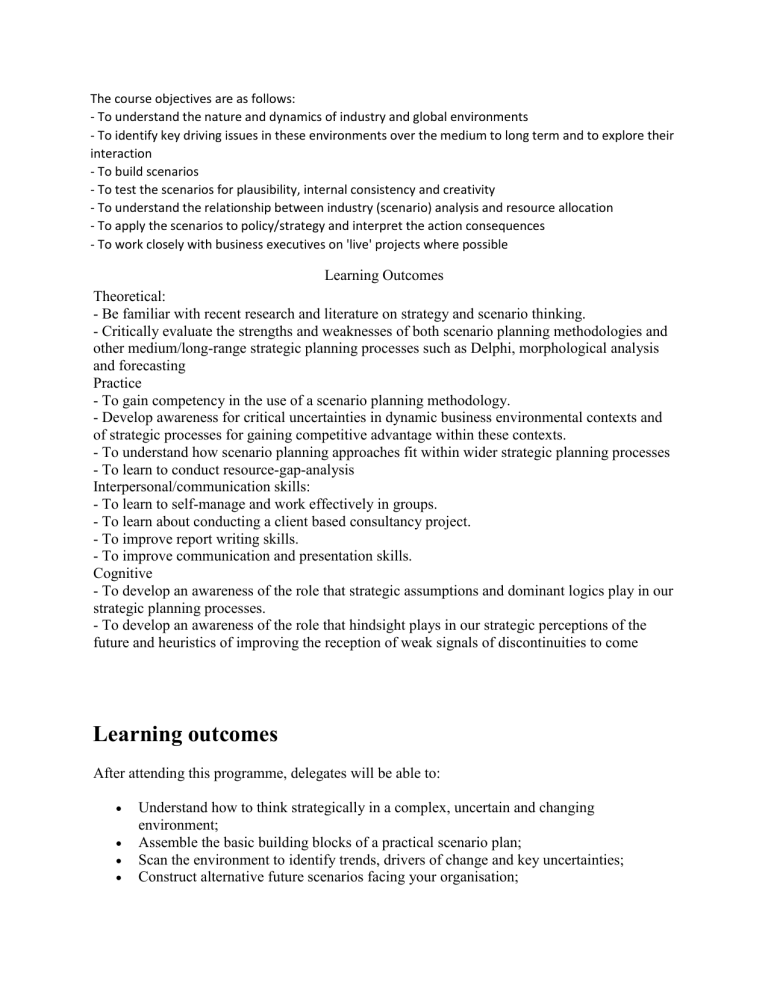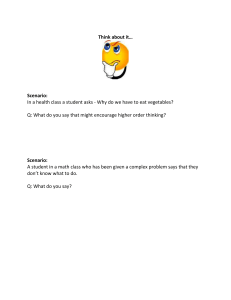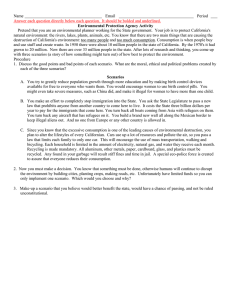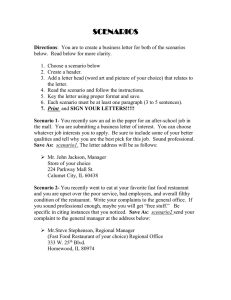
The course objectives are as follows: - To understand the nature and dynamics of industry and global environments - To identify key driving issues in these environments over the medium to long term and to explore their interaction - To build scenarios - To test the scenarios for plausibility, internal consistency and creativity - To understand the relationship between industry (scenario) analysis and resource allocation - To apply the scenarios to policy/strategy and interpret the action consequences - To work closely with business executives on 'live' projects where possible Learning Outcomes Theoretical: - Be familiar with recent research and literature on strategy and scenario thinking. - Critically evaluate the strengths and weaknesses of both scenario planning methodologies and other medium/long-range strategic planning processes such as Delphi, morphological analysis and forecasting Practice - To gain competency in the use of a scenario planning methodology. - Develop awareness for critical uncertainties in dynamic business environmental contexts and of strategic processes for gaining competitive advantage within these contexts. - To understand how scenario planning approaches fit within wider strategic planning processes - To learn to conduct resource-gap-analysis Interpersonal/communication skills: - To learn to self-manage and work effectively in groups. - To learn about conducting a client based consultancy project. - To improve report writing skills. - To improve communication and presentation skills. Cognitive - To develop an awareness of the role that strategic assumptions and dominant logics play in our strategic planning processes. - To develop an awareness of the role that hindsight plays in our strategic perceptions of the future and heuristics of improving the reception of weak signals of discontinuities to come Learning outcomes After attending this programme, delegates will be able to: Understand how to think strategically in a complex, uncertain and changing environment; Assemble the basic building blocks of a practical scenario plan; Scan the environment to identify trends, drivers of change and key uncertainties; Construct alternative future scenarios facing your organisation; Test your current business idea against a range of different futures; Identify how to develop a resilient strategy to cope with these uncertainties; Define the capabilities required to execute this strategy; and Build a scenario plan for a range of situations and organization Course Content Summary The focal point of this typically one day event is the provision of the tools that will help delegates to envision the range of possible futures that their business will face. The program will encompass: * Why traditional business planning techniques will fail. * The key differences between scenario planning and forecasting. * Understanding the key forces that inter-act to shape the future. Delegates will learn how to identify these forces and their potential to disrupt the marketplace by examining real-life case studies from financial services, technology and consumer goods sectors. * How to define scenario questions and themes. * How to develop a scenario timeline showing the interaction of key forces. * Scenario construction. * Development of implications for delegates’ businesses. * Tests of strategic robustness – will current strategies win through? * Development of an early warning scorecard. * How to present scenarios in a simple visual format. * Resources for the scenario builder. Critically,delegates will use these techniques to build a sample scenario during the course.


